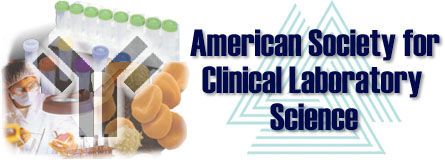Independent Practice

Document: Independent Practice
Classification: Statement of Philosophy
Revision Date: February 2012
Status: Approved by House of Delegates, 2012
It is the position of the American Society for Clinical Laboratory Science (ASCLS) that clinical laboratory testing is the defined practice of qualified medical laboratory professionals and encompasses the design, performance, evaluation, reporting, interpreting, and clinical correlation of clinical laboratory testing, and the management of all aspects of these services. As healthcare professionals, medical laboratory scientists have the required knowledge and skills to perform, correlate, and interpret laboratory tests, supervise and direct clinical laboratories, and educate medical laboratory professionals. Medical laboratory scientists as members of the healthcare team, collaborate in the diagnosis and treatment of patients by implementing initial and reflex algorithms and testing protocols within prescribed guidelines. Medical laboratory scientists assure reliable and accurate laboratory test results, disseminate clinical laboratory test information to clinicians and patients in a timely manner, and evaluate the outcome of clinical laboratory testing for each individual patient and the entire healthcare system.
Medical laboratory scientists, with appropriate graduate education, can direct full-service clinical laboratories. This function is firmly grounded in (a) applicable state law, and (b) federal regulations governing clinical laboratories under the Clinical Laboratory Improvement Amendments of 1988 and laboratory participation in Medicare and Medicaid.
Clinical Laboratory Science is a profession that practices independently as well as collaboratively with other healthcare professionals and is distinct from the practice of medicine. It is characterized by its own Body of Knowledge and Scope of Practice, certifies its own practitioners, requires of its practitioners competency in scientific, technical, managerial and scholarly principles, and high standards of performance and professional conduct. Artificial and arbitrary barriers to this practice should not be erected.
The current economic and regulatory healthcare environment benefits from expanded roles for non-physician health professionals to provide quality, cost-effective assessment, diagnosis, treatment, patient safety, appropriate utilization of laboratory services and information for healthcare consumers.